Beijing warns NATO against exaggerating 'China threat theory'
Beijing has warned NATO against exaggerating the perceived threat from China and “artificially creating confrontation,” after US President Joe Biden urged Washington’s European allies to stand up to the Asian power.
The leaders of the North Atlantic Treaty Organization (NATO) took a forceful stance towards Beijing on Monday, accusing the country of threatening the international order through assertive actions in building a nuclear arsenal and space and cyber warfare capabilities.
The Chinese mission to the European Union (EU) reacted to the accusation on Tuesday, calling for NATO to “view China's development rationally.”
The mission said NATO needs to “stop exaggerating various forms of 'China threat theory' and not to use China's legitimate interests and legal rights as excuses for manipulating group politics (while) artificially creating confrontations.”
It described the accusations as a "slander of China's peaceful development, a misjudgment of the international situation and its own role, and it is the continuation of a Cold War mentality and the group's political psychology at work.”
China is always committed to peaceful development, it added.
"We will not pose a 'systemic challenge' to anyone, but if anyone wants to pose a 'systemic challenge' to us, we will not remain indifferent," said the Chinese mission.
The exchange came a day after leaders of the Group of Seven adopted a hostile stance toward Beijing in their final statement, repeating their allegations over a range of contentious issues.
The G7 statement took China to task for alleged human rights abuses in the Xinjiang region and activists in Hong Kong.
The statement also implied that China was disturbing “peace and stability” in the Taiwan Strait, a heavily policed waterway that separates mainland China and Chinese Taipei. China has sovereignty over the self-governed island under the internationally-recognized “One China Policy.” But Chinese Taipei sees itself as a sovereign state.
In addition, the G7 accused China of pursuing expansionist policies and hindering freedom of navigation in the disputed South China Sea.
The Chinese embassy in London hit back at the G7 for "political manipulation," saying the group distorted the facts and exposed the "sinister intentions of a few countries such as the United States."
Having pressed the G7 leaders to take concrete steps to counter China, Biden said at the end of the summit on Sunday that his administration will deal with China in a straightforward manner.
Relations between China and the US were severely strained under former president Donald Trump, who viewed the rise of China as a threat to the United States.
Beijing hoped for an improvement in relations under Biden's administration, but the new president has so far shown no sign of backing down on hardline policies toward Beijing.
The president has even urged his democratic allies in Congress to harden their stance on China.
Beijing has denounced Washington’s aggressive policy, describing it as “too negative.” It has said that Biden is pushing towards confrontation rather than cooperation.

China deploys naval group in warning to US, Philippines over drills
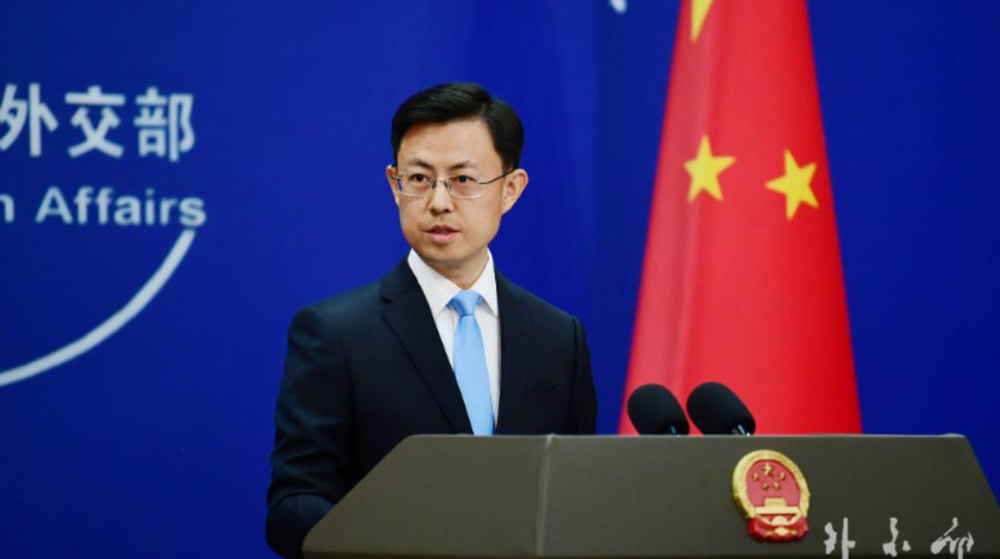
China says expects ‘in-depth’ talks during Iran foreign minister’s visit
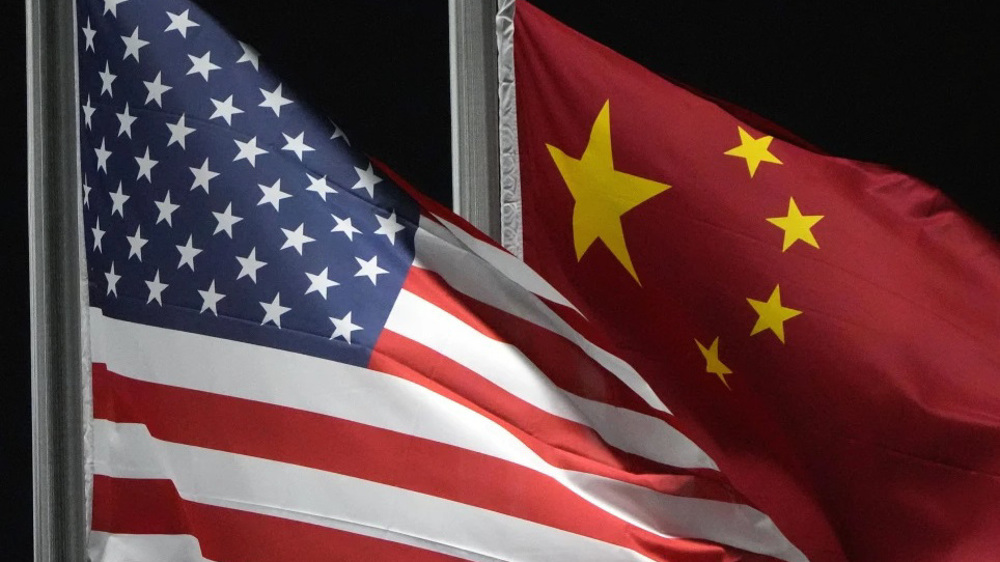
China sanctions US figures over ‘gross interference’ in Beijing’s affairs
India, Pakistan escalate tit-for-tat moves with military threats
VIDEO | Press TV's news headlines
Spain cancels arms deal with Israeli company over Gaza aggression
Dozen US states sue Trump government over 'insane, reckless' tariffs
China deploys naval group in warning to US, Philippines over drills
Iran elected to chair judicial summit of Shanghai group in 2026
Iran FM says ready to visit Paris, Berlin, London for diplomacy
Iran petroleum minister in Russia to boost economic cooperation


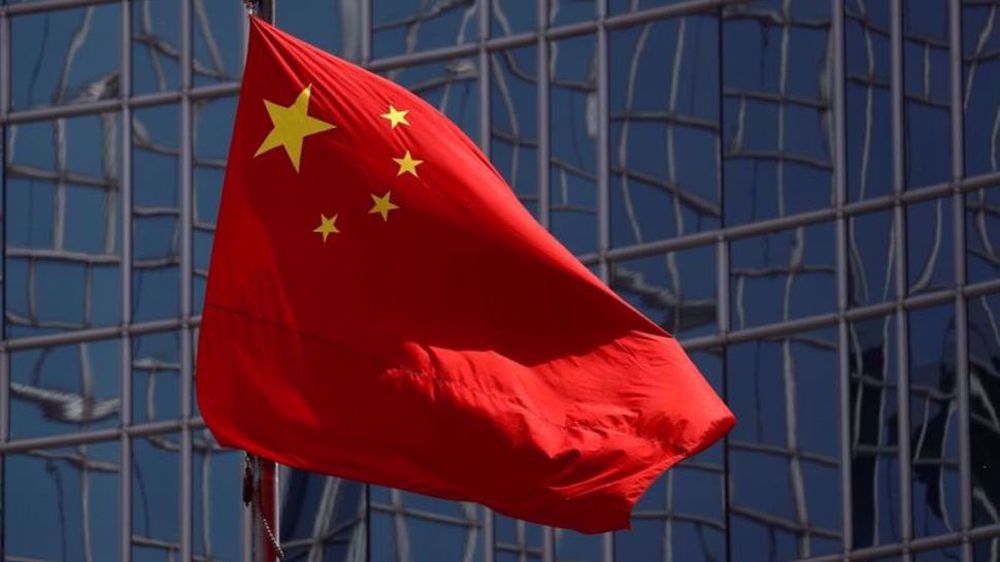





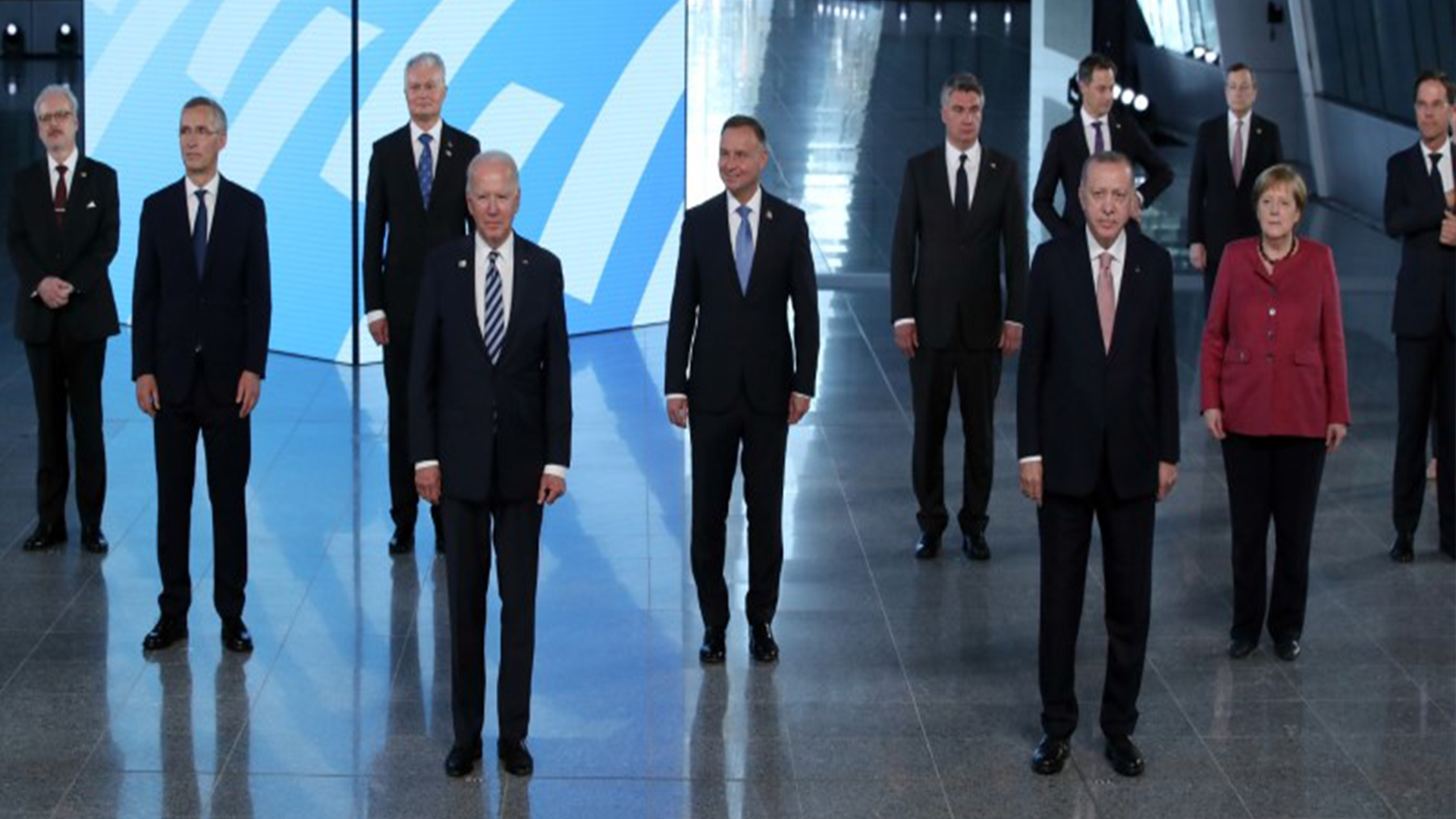
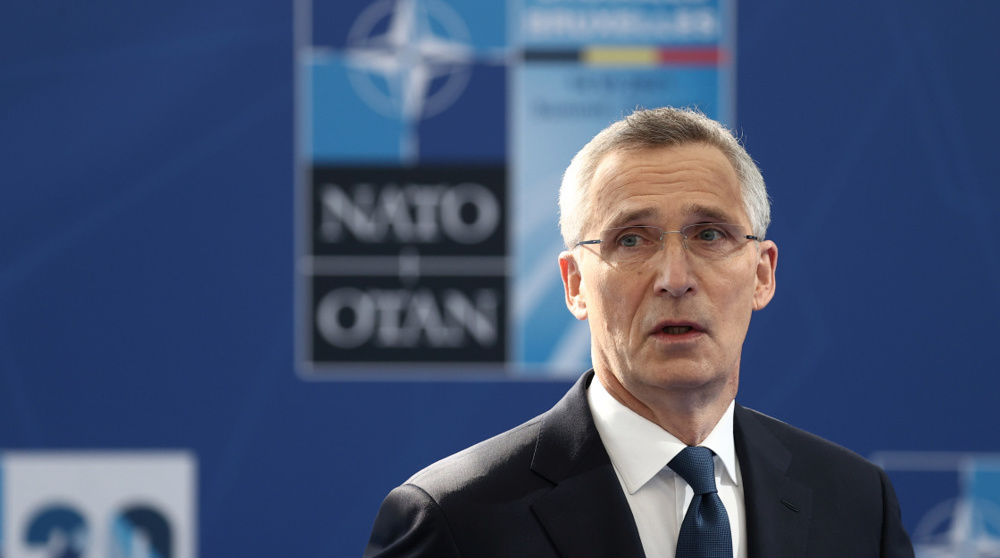
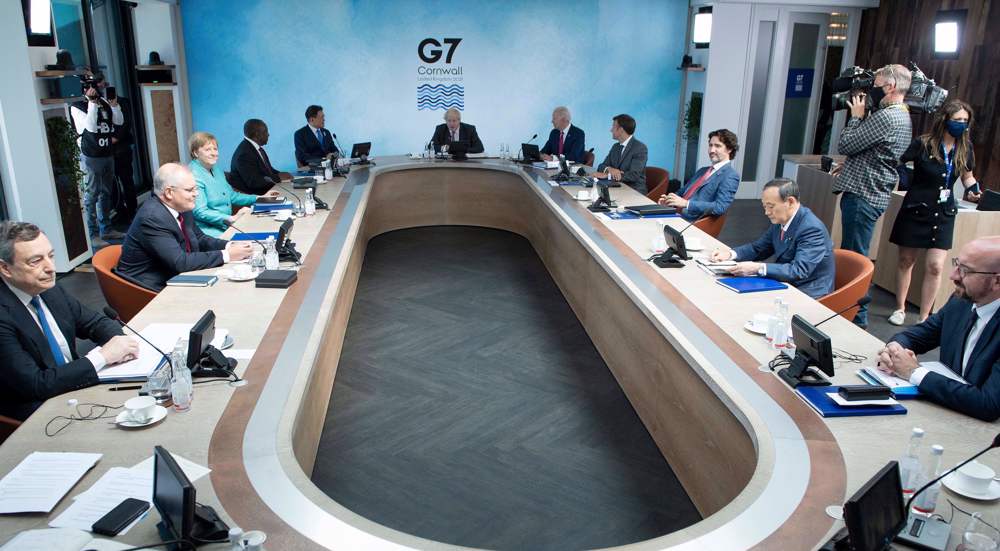

 This makes it easy to access the Press TV website
This makes it easy to access the Press TV website